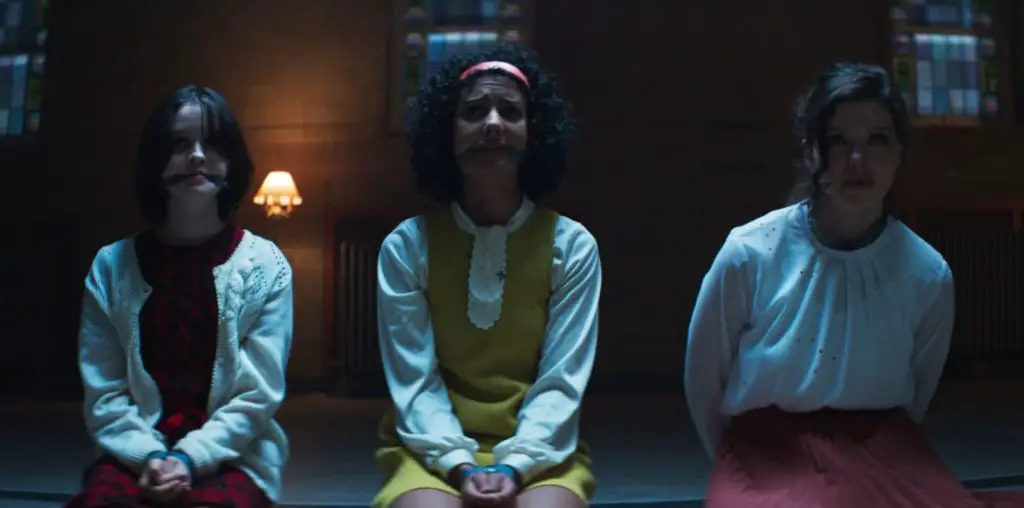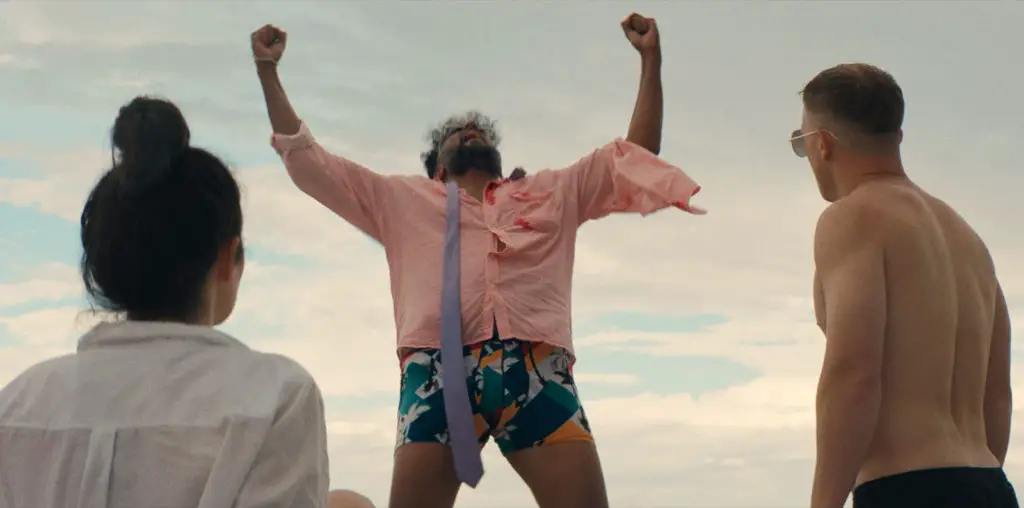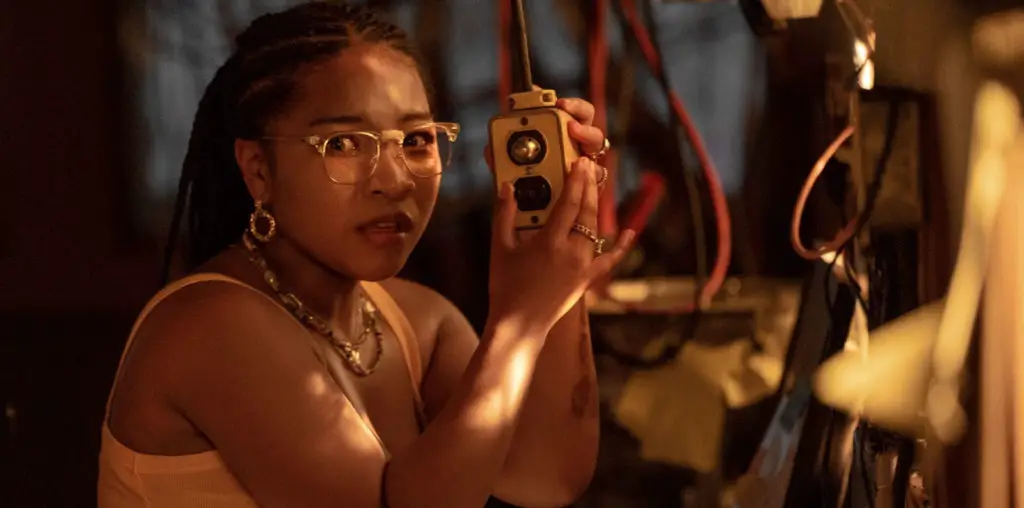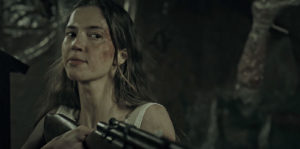
Jonathan Swift’s satirical A Modest Proposal suggested that eating the poor would solve the problem of having so many. Co-directors Karyna Kudzina and Michael Vaynberg’s Silence of the Prey, written by Kudzina and Saro Varjabedian, is a nod to the 1729 essay. It hits you with a velvet hammer on the topical societal perception of immigration while increasing the intensity at every turn.
Nina (Karyna Kudzina) is an undocumented Belarusian mother in the United States. She and her daughter, Bella, can have a future in America or live on the street since no one will hire her in the city. So, Nina opts to be a caretaker at the rustic country home of an eccentric older man named Luther (Chris Lapanta). Life is simple here, with wholesome food grown in the nearby forest, folk remedies for coughs made there, and all meals are communal. There’s also no telephone, internet, or mobile reception, and the nearest store is several miles away. Plus, there’s only one road leading in and out.
Silence of the Prey opens oddly. Mother and daughter stop for a potty break, only to be harassed by a group of males who jump out of the forest. Nothing comes of this incident, but it does highlight how predictable, to a fault, the film is. As soon as Luther is introduced, you know something isn’t right with him based on his manner of speech and looks. Nina learns her duties, one of which is never to enter the structure in which Luthor cures meat. He doesn’t take trespassers kindly, nearly killing Andres (Monte Bezell), who stumbled upon the place after his car broke down.
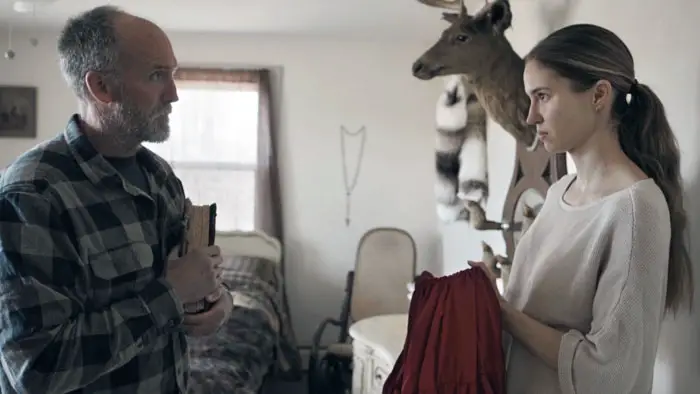
“…Nina has nightmares of people with deer antlers peering in windows…”
The folk horror motif comes amid deer being sacred. Killing them is doing them a service to the forest, the animal overrun otherwise, or so is claimed. Luthor even calls Bella “Bambi,” showing her various bits of the farm. While at the remote estate, Nina has nightmares (hallucinations) of people with deer antlers peering in windows and standing near the farm’s fences.
The real horror of Silence of the Prey is not the gore or the telegraphed situations but the prejudice, fear, and ignorance that many do not acknowledge. This horrifying reality is brought out during a party. Some people remark that they believe that immigrants and refugees are not human. Ignorance and isolationism are fostered by incendiary portrayals of newcomers as all evil and coming for your families. Lines like “Is Belarus a country?” and “It was a part of Russia, wasn’t it, so what is the difference?” hammer this home. At the party, several people ask Andres where they can buy cocaine because of his apparent race. The concept of the “Ugly American” who has a total belief in American exceptionalism is on full display and is the real menace. Some may find the message preachy, yet it’s a real threat to people’s safety and lives and should not be ignored.
Silence of the Prey is lovingly filmed, with Varjabedian’s cinematography giving us lush greens in the deep, dark forests. The small cast does an intense job, led by Kudzina, who resembles Lea Seydoux. She provides the resigned Nina with some fine moments, especially when she will not take what is given. The script may have its signposts, yet many don’t see the signs and the attitudes that pass off as jokes or remarks in themselves, which is the actual hideous monster lurking in the woods and the cities.
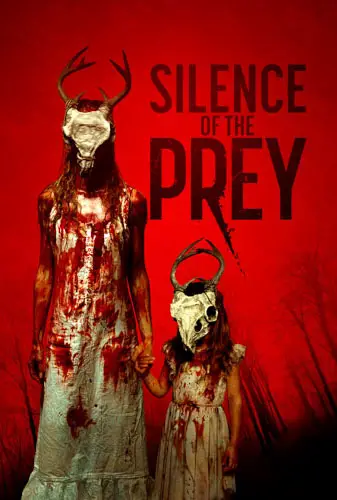
"…should not be ignored."
